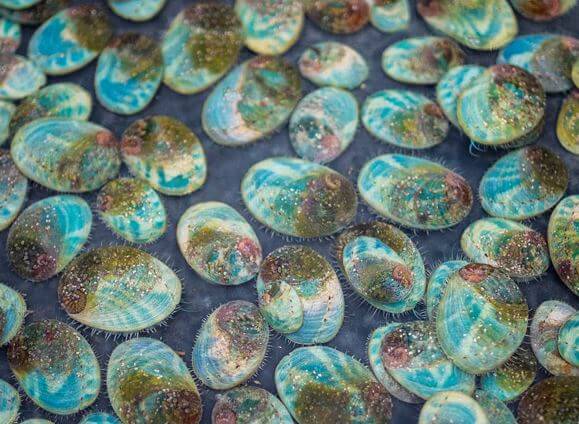As we saw in Part 1, Kangaroo Island Plantation Timber (ASX: KPT) is trying to get development approval for an export terminal, chipping mill and wharf on the island’s Smith Bay. Citing the contingency of the 2020 bushfires, KPT has raised the prospect of millions of dollars in timber being stranded if the terminal is not approved.
Yet there are strong grounds for state regulators to reject the export terminal, and these shouldn’t be obfuscated simply because the company invested in trees before it had a facility to ship them.
Smith Bay, where KPT hopes to build it’s 650-metre wharf and industrial facility, is part of a coastal conservation zone. According to The Australian, the bay is a breeding ground for dolphins, humpback whales and sea eagles. The Australian Ocean Lab says Smith Bay is a significant site for the threatened southern right whale.
Then there is the impact on the Smith Bay abalone farm, operated by Australian-based global leader Yumbah. In a submission to SA’s Development Assessment Commission, Yumbah-commissioned expert Dr Paul McShane of Monash University said the terminal is an “overwhelming threat” to the farm. Dredging for the port’s construction would create enough sediment to threaten the company’s entire stock of abalone, according to Dr McShane.

Locals are also concerned about the traffic in logging trucks around the quiet island’s run-down roads. According to Mayor Michael Pengilly, “The majority of Kangaroo Island people would just like to see the forest industry wiped out and returned to agriculture.”
Kangaroo Island’s local newspaper raised its concern that south-west Victoria’s timber plantation zone has some of Australia’s most dangerous roads, not just for drivers but also for local wildlife. KPT has said its terminal would be in the top quarter of the busiest timber terminals in the entire Pacific Rim.
There’s also the biosecurity risk posed by such a busy port. Bees and seed potato are raised on Kangaroo Island; precisely because it is cut off from the rest of the world, it doesn’t face the same threats with infectious fungi and bacteria.
The KPT development cuts to the core of the kind of Australia we want to live in. Projecting forward deep into the Asian Century, do we want to be a high-volume seller of industrial goods like wood chips that tarnish our environment (and environmental reputation)? Or would we rather prioritise tourism and high-value eco-products like abalone, where our comparative advantage is our very distance from the pollution that marks most of the rest of the planet?
Follow Christian on Twitter for more news updates.